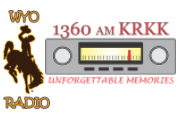EVANSTON, WYOMING, October 6, 2015 — On October 2, 2015, the Wyoming Pari-Mutuel Commission ordered the shutdown of all Historic Horse Race Terminals in Wyoming by midnight Sunday, October 4, giving operators just 60 hours to shut down. The decision effectively shut down the Historic Horse Race industry in the state, terminating the flow of millions in tax dollars to state and local authorities and terminating the very industry that had been the life blood of Wyoming’s live horse racing. In addition, the order to cease operating the terminals has already resulted and will continue to result in employee layoffs. Moreover the order threatens the live race season.
The basis for the shutdown was a claim by the Pari-Mutuel Commission that the historic horse race terminals contained a component of luck or randomness in contradiction of state law. However, before the terminals were put into use, the same Commission determined that the historic race terminals operated in a manner consistent with state law.
The Commission sought and received an opinion on the compliance of the terminals from the Gaming Laboratories International, the largest and most respected third-party testing and compliance vendor of wagering devices. It was only on reliance on the Commission’s prior determination that the terminals were compliant with state law that Wyoming Downs spent millions of dollars buying the specific terminals approved for use by the commission.
Despite pleas from the operators of the historic race terminals to allow the operators to remain open while the manufacturer of the terminals made adjustments, the Commission ordered the shutdown.
Historic Horse Racing remains legal; the licensing to operate the HHR terminals remains unquestioned and intact, and simulcast betting windows can remain open. However, the stunning ruling came after the HHR industry had played by all the rules: after the 2013 Wyoming legislature had approved historical racing terminals, after Governor Meade had signed a bill making historic racing terminals legal, after regulations set by multiple entities had been met, after all the specific approvals had been obtained, after owners had spent millions of dollars on the historic racing terminals, after millions of dollars had been invested in the live horse racing industry and after millions of dollars in taxes had gone into city, county and state coffers.
The order to shut down came after Wyoming’s live horse race industry had been brought back to life with breeders and horsemen recommitting to an industry that had lost its pulse. Wyoming Downs managing member and part owner Eric Nelson said, “Through its ruling the Wyoming Pari-mutuel Commission basically said, ‘Shut ‘er down.’”
Wyoming Downs informed many of its employees via letter that they will be placed on temporary unpaid furlough for the next 30 days. Should the work stoppage extend beyond 30 days they will be placed on permanent layoff.
Wyoming Downs has created hundreds of jobs for families across the state, employed both directly and indirectly by the historic racing industry. As a result of the racing and horseman/breeders industry momentum supported by historic racing revenue, 2015 live racing events across the state saw record attendance and wagering handle. According to industry members at all levels, live racing was not only on the rebound, it had come back.
In early 2015 the Commission Director requested a legal opinion from the state’s Attorney General’s office in response to complaints from special interest groups. After approximately 5 months of investigation the Attorney General’s opinion was made public during an October 2, 2015 Pari-mutuel Commission meeting in Casper.
The misperception that all recorded HHR and live horse race wagers are business profits has fueled misunderstanding among commissioners and legislatures and industry naysayers. Actual profits are approximately 1% of wagered handle. Taxes at multiple levels, business expenses and employee salaries usurp the bulk of revenue.
Nelson said, “It’s going to be tough, but Wyoming Downs is working to complete the transitional requirements as quickly as possible in order to re-open the off track betting facilities, bring people back to work, and hopefully ensure that we have a live horse race season next year.”

